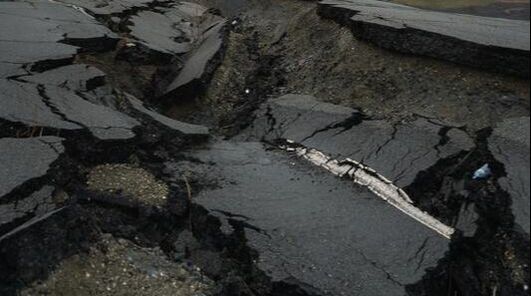|
By Anya Shukla This book centers around people who can start and quell earthquakes. As someone who lives in Seattle, home of the long-awaited Big Quake, this really got to me. My family is horrendously underprepared for an earthquake. Unlike those in “The Fifth Season,” we have not been storing food underground, nor do we have a hanging frame in our house (which is an earthquake-safe building structure, according to this novel). So it shouldn’t come as a surprise that I’ve been a little stressed out lately. Review: N.K. Jemisin’s “The Fifth Season” begins with the end of the world… yet the start of a global apocalypse is not this novel’s focal point. Instead, the book follows three female orogenes (people who can manipulate tectonic plates with their minds): Damaya, a young girl learning to master her powers; Syenite, who accompanies a high-level orogene on an assignment; and an innominate character attempting to retrieve her daughter. Orogenes face prejudice and injustice due to their abilities, and Jemisin illustrates this inequitable dynamic’s impact on the lives of her characters. She utilizes the science-fiction genre to critique real-life societal systems, providing a destructive and thought-provoking alternative to modern-day inequities. Rating: 5/5. What I Loved: Uhh… pretty much everything. The tone and set-up feels more “Left Hand of Darkness” than “Ender’s Game,” which I loved; I prefer let’s-sit-down-and-reimagine-the-world-like-intellectuals sci-fi over rah-rah-space-fighting sci-fi. And this book provided a LOT of intellectual stimulation through... 1. The plot twists, which surprised me but made sense in hindsight. Jemisin dropped just enough clues to tie everything together; for example, a ratty blanket in an early chapter reemerges near the end of the book. 2. The worldbuilding: it’s clear that time and thought have gone into the creation of this universe. Even the curses have meaning—instead of traditional swear words, people use “rust,” since it’s feared in a world where earthquakes could topple unsafe metal structures at any moment. I appreciate that level of specificity. Additionally, Jemisin doesn’t shy away from diversity, both racial and sexual, in her characters. That being said, she doesn’t force it down your throat—I’ve read books where, whenever we meet a character, we learn their skin color but nothing else about them—but instead presents diversity as commonplace, normalizing her characters’ identities for her readers as well. What I Didn’t Love: Jemisin does throw you in the deep end at the beginning of “The Fifth Season”; she doesn’t really take the time to explain the world she’s created, so the first few chapters may seem dense and confusing. I personally enjoyed piecing together the worldbuilding as I went along, but people who don’t might get discombobulated. You just have to stick with it—everything starts to make sense after a little bit. BIPOC Book Connections/Food For Thought: Naomi Novik’s New York Times review of this book closes with the following: “The end of the world becomes a triumph when the world is monstrous.” “The Fifth Season” chronicles a reality where orogenes face massive discrimination—and in some cases, physical and sexual abuse. One orogene decides to raze this prejudiced society and rebuild it into something more humane rather than slowly institute reforms. I saw this dichotomy after reading “Heavy” a few weeks ago: “Laymon favors difficult truth-telling over wishful fantasy-building, demanding a deconstruction and reconstruction of this nation rather than a slight realignment.” At what point do we distance ourselves from an antiquated political or social structure and create another option? And what is the cost of doing so? In “The Fifth Season,” systemic change comes with large-scale death and destruction. Is it better to incrementally implement reforms knowing that people—orogenes, in this case—will continue to die and suffer, albeit on a smaller scale? Or is a complete overhaul the more humane option? A Quote I Would Like On Goodreads: “Tell them they can be great someday, like us. Tell them they belong among us, no matter how we treat them. Tell them they must earn the respect which everyone else receives by default. Tell them there is a standard for acceptance; that standard is merely perfection. Kill those who scoff at those contradictions, and tell the rest that the dead deserved annihilation for their weakness and doubt. Then they’ll break themselves trying for what they’ll never achieve” (pg. 141-142). Up next: "Mexican WhiteBoy" by Matt de la Peña.
0 Comments
Your comment will be posted after it is approved.
Leave a Reply. |
Archives
February 2023
Categories
All
|

 RSS Feed
RSS Feed